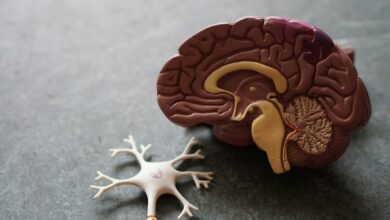MRCP Test: Purpose, Preparation, Procedure, and Results
The greatest hollow area on your body is your abdomen, yet it’s not empty. It contains vital organs, including your liver and kidneys. Unfortunately, medical professionals won’t be able to get a good look at some of these organs if problems arise because they are located deep within the cavity.
MCRP test full form is Magnetic Resonance Cholangiopancreatography. It is a secure and non-intrusive method of medical diagnostic imaging. This method uses a magnetic field and radio waves to produce detailed images of the abdominal organs on a computer screen. What to expect from the MRCP test, when it’s recommended, and any possible side effects are all covered below.
A special MRI test is called magnetic resonance cholangiopancreatography (MRCP). Using MRCP, a doctor can view the organs in your belly that is filled with fluid. The test is used to identify many conditions, including pancreatitis and gallstones. Additionally, it can look for surgical issues or hereditary conditions that might damage internal organs.
Purpose of MRCP Test
Magnetic Resonance Cholangiopancreatography (MRCP) provides your doctor with a detailed image of the organs in your abdomen that is filled with fluid. This includes:
- Liver
- The pancreas and its ducts
- Gallbladder ducts and gallbladder
MRCP scans are extremely valuable since cancers can form in the bile and pancreatic ducts, which the device scans. They assist doctors in determining whether a patient requires surgery or not. Compared to more invasive treatments like ERCP scans, this type of scan is preferable because it is non-invasive.
The non-invasive scan uses strong magnetic fields and radio waves to build an image of your internal organs. Your doctor might ask for an MRCP blood testing even though it is not a standard or routine imaging test for the following reasons:
- Inflammation
- Cancer of the bile duct
- The presence of gallstones
- Find out what’s causing your pancreatitis.
- Underlying causes of Jaundice and Liver diseases
- Determine the cause of unexplained stomach pain.
- Narrowing or obstruction of the bile or pancreatic ducts
- Examine an organ for signs of a particular condition (like cancer)
In contrast to endoscopic retrograde cholangiopancreatography, the MRCP blood test is a non-invasive procedure (ERCP). In this invasive procedure, pictures of the pancreas, pancreatic, and bile ducts are obtained using dyes and X-ray imaging.
MRCP Test Preparation
People getting an MRCP scan might need to follow specific rules. However, these rules can vary from facility to facility—the regulations regarding what to eat and drink before an MRI exam. In most cases, you won’t be allowed to eat or drink anything for a few hours before your treatment.
Timing
The time of day doesn’t matter when getting an MRCP; the facility will choose the test schedule based on the location, the urgency of the exam, and your preferences.
Location
It is necessary to perform the MRCP test with an MRI scanner. These enormous apparatuses frequently occupy an entire hospital or outpatient facility room. The doctor gives you instructions on how to schedule your test and where to go to have it completed.
Dressing
Before having an MRCP or MRI scan, most facilities will require you to change into a hospital gown. Before the exam, you must also take off any jewelry, piercings, or eyeglasses. Due to the magnets in an MRI scanner, metal zippers and buttons are not permitted.
Food and Drink
Your doctor instructs you to refrain from food and liquids for a specific period before the exam. For example, many people advise fasting for at least four hours. This will limit the movement and fluid in your abdomen during the test.
If you have any medical or electronic equipment inside your body, let the technician know. These gadgets might harm the exam or cause interference. Many implanted devices come with a brochure outlining the hazards of having an MRI while using that device. Bring the booklet to the scheduler’s attention before the exam if you have it. Without verification and documentation of the implant’s type and MRI compatibility, an MRI cannot be carried out. Additionally, you should bring any literature to the assessment of the radiologist or technician who asks any inquiries.
MRCP Test Procedure
The standard MRI machine consists of a large tube with a circular magnet. You will be placed on a table that slides into a tunnel leading to the magnet’s core.
Some MRI machines, known as short-bore systems, are made only partially to enclose you in the magnet. For larger individuals or those who experience claustrophobia, some of the latest MRI machines offer a wider diameter bore. The sides of “open” MRI units are open. They are handy when assessing larger patients or those who are claustrophobic. For a variety of examinations, open MRI machines can produce images of excellent quality. However, for some tests, an open MRI may not be appropriate. Consult your radiologist for further details.
You will be positioned on the mobile exam table by the technologist. The technician may put objects with coils that can transmit and receive radio waves close to the part of the body being examined.
Most MRI exams consist of several runs (sequences), some of which can extend for several minutes. Different sounds will be produced during each run.
A doctor, nurse, or technologist will place an intravenous catheter (IV line) into a vein in your hand or arm if your exam involves a contrast substance. The contrast agent will be injected using this IV.
You will be positioned inside the MRI machine’s magnet. A technician will examine them while seated at a computer outside the examination room. The technologist will be reachable via an intercom.
After a preliminary round of scans, the technologist will administer the contrast material if your exam calls for it into the intravenous line (IV). More pictures will be taken during or after the injection.
The actual MRCP exam lasts for around 10-15 minutes. However, it is frequently combined with a standard abdominal MRI that takes about 30 minutes and uses contrast material. In this instance, the test is often finished in 45 minutes.
After the Test
After the exam, you will change back into your regular clothes, and any IVs used during the test will be taken out. You could require transportation home if you received sedation at an outpatient clinic. If you are an inpatient having the test, you will be returned to your room once it is over.
What is the MRCP test cost in Hyderabad?
The MCRP test price in Hyderabad is around 8000 INR. You can avail of the best diagnostics services with a simple online search “best diagnostic center in Hyderabad” or “best MRCP test near me.”
The Final Word
An MRCP is a painless substitute for more invasive techniques for identifying an abdominal condition. You can take your MRCP test without worry if your doctor advises it now that you know the test’s objectives, outcomes, and side effects. Then, on the day of your test, your doctor and the facility’s staff can take measures to relieve your anxiety and make sure everything goes according to plan.


